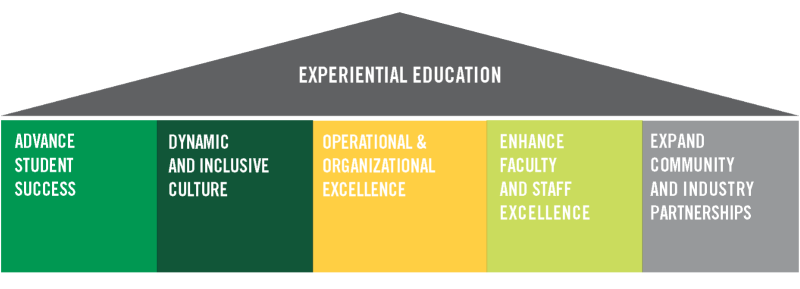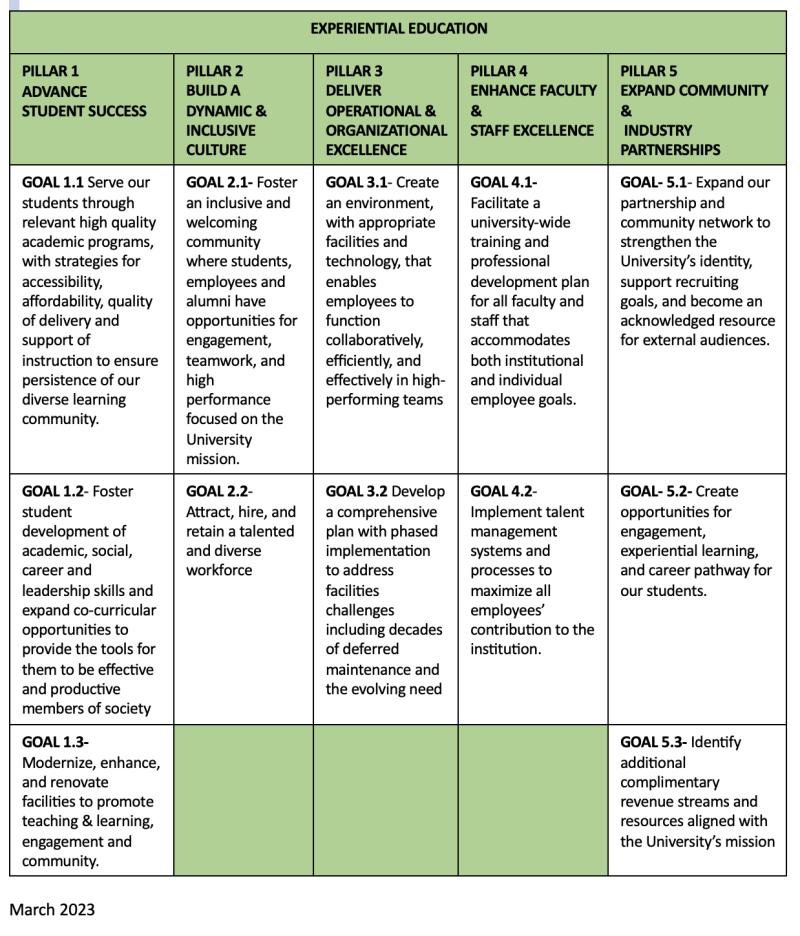Delaware Valley University Strategic Plan

Mission
We are inspired by the ideals of our founder, who in 1896 emphasized respect for all people and ideas, who honored knowledge with practice, progress and the common good. Our historical commitment to experiential learning integrates theory and practice and prepares undergraduate and graduate students to meet the challenges of a complex global environment and to engage in lifelong learning. We provide students with the requisite skills and a spirit of inquiry that enrich and inform their lives, prepare them to pursue meaningful careers, and fulfill societal, community and family responsibilities.
Vision
Delaware Valley University will be the leader in experiential education, empowering all learners to transform the world.
Values
1. Respect All People
2. Value the World of Ideas and Differences
3. Pursue Excellence
4. Live Each Day with Integrity
5. Teach, Learn and Serve with Passion and Commitment
6. Act as One Learning Community with One Purpose
Overarching Goals
Advance Student Success
To leverage experiential learning to prepare students with skills that employers want, society needs, and leadership demands.
Build a Dynamic and Inclusive Culture
To foster an inclusive and welcoming community where students and employees feel they belong and can thrive.
Deliver Operational and Organizational Excellence
To create an environment, with appropriate facilities and technology, that enables employees to function collaboratively, efficiently, and effectively in high-performing teams in fulfilling the University’s vision.
Enhance Faculty and Staff Excellence
To attract and retain a diverse workforce; To reinforce a University-wide professional development approach for all faculty and staff that accommodates institutional and individual employee needs and goals.
Expand Community and Industry Partnerships
To create and cultivate partnerships that expand experiential learning opportunities for our students and encourage complementary revenue streams for the institution while promoting awareness of DelVal.
Strategic Plan Goals
